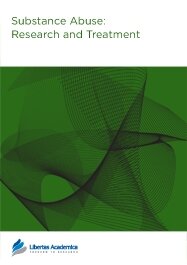

Publication Date: 26 Oct 2010
Type: Original Research
Journal: Substance Abuse: Research and Treatment
Citation: Substance Abuse: Research and Treatment 2010:4 53-60
doi: 10.4137/SART.S6019

Patients treated for methamphetamine (MA) dependence have a high rate of relapse, and stress is thought to play a key role. We sought to develop a computerized procedure for experimentally inducing stress in MA users. In a within-subjects design, we compared a computerized subtraction stress task (SST) to personalized stress-imagery scripts and a control condition (neutral imagery) in 9 former MA users, recruited in San Francisco in 2006–2007. We assessed blood hormone levels, anxiety and craving for MA on visual analog scales, and the Positive and Negative Affect Schedule and made linear mixed-effects models to analyze the results. Both the SST and stress scripts were effective in inducing self-report markers of stress in MA users. Because the SST is easily reproducible and requires less time of staff and participants, it may be a useful alternative for measuring stress reactivity in drug users.
PDF (554.21 KB PDF FORMAT)
RIS citation (ENDNOTE, REFERENCE MANAGER, PROCITE, REFWORKS)
BibTex citation (BIBDESK, LATEX)
XML
PMC HTML

This is the first time we published an article in Substance Abuse: Research and Treatment, and we were pleased to find that the publishing staff were extremely helpful in guiding our submission through all the hoops. More important they answered our concerns without delay and where necessary made changes in the page proofs in accord with our wishes. I have published upwards of 80 or 90 articles, chapters and edited volumes, and I have ...

All authors are surveyed after their articles are published. Authors are asked to rate their experience in a variety of areas, and their responses help us to monitor our performance. Presented here are their responses in some key areas. No 'poor' or 'very poor' responses were received; these are represented in the 'other' category.See Our Results
Copyright © 2013 Libertas Academica Ltd (except open access articles and accompanying metadata and supplementary files.)
Facebook Google+ Twitter
Pinterest Tumblr YouTube